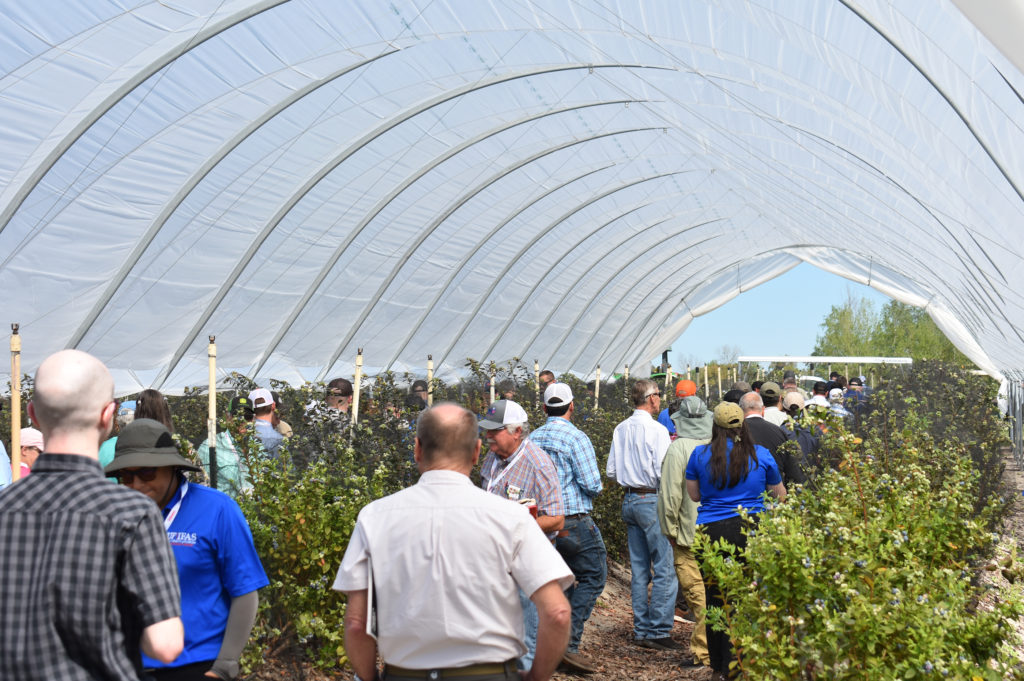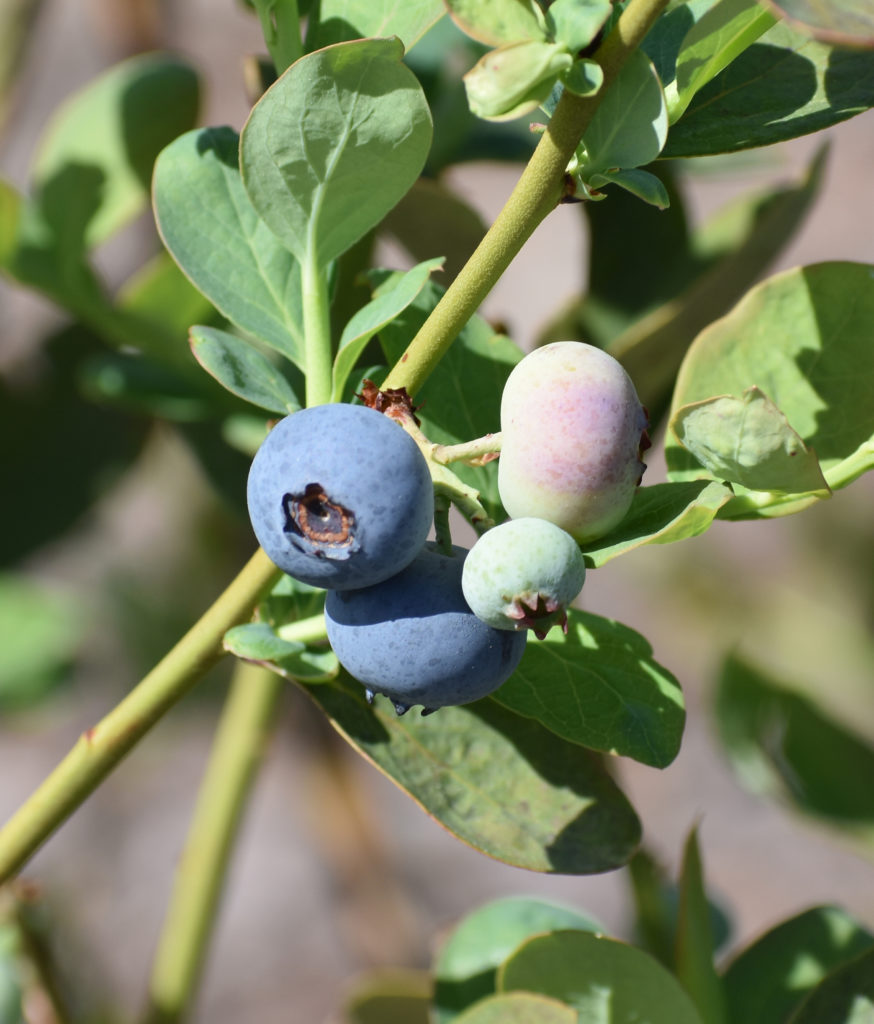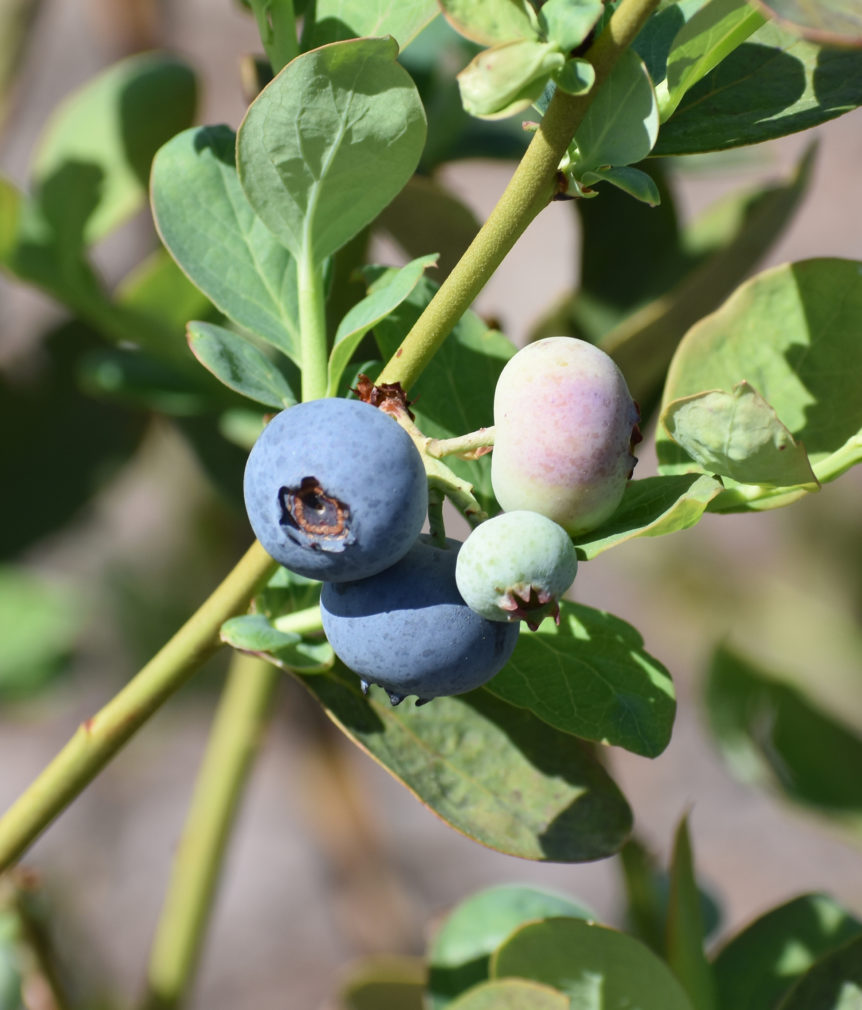
By Clint Thompson
Florida blueberry producers hope to remain sustainable now and into the future. That is why Thursday’s Florida Blueberry Growers Association spring meeting and field day at the University of Florida Institute of Food and Agricultural Sciences (UF/IFAS) Plant Science Research and Education Center in Citra, Florida, was so important.
UF/IFAS researchers and graduate students provided vital information for growers who need to be more efficient in their production strategies.

“It’s very important to see all of these research trials; nutrition, nitrogen, phosphorous. You don’t want to waste your money putting too much on. You want to put the right amount on, what the plant needs,” said Florida blueberry grower Gary Smith. “The Dormex trials they do here and breeding work they do here is extremely important to our industry; to find these newer varieties that are earlier, better fruit; better tasting fruit. All of the industry is based on what they do up here really.”
Research in Citra, Florida
Graduate students provided input on research trials they are currently conducting at UF/IFAS. The research centered on nitrogen applications for evergreen blueberry; phosphorous fertilization for deciduous blueberry; fall blueberry production; and grafted blueberry research. After the morning presentations, the students led attendees on tours of the actual research during the field tour.
“It’s a pretty well attended meeting but I think the growers really appreciate getting out in the field and not just hear about things, but see it for themselves,” said Doug Phillips, UF/IFAS blueberry Extension coordinator.
“They talked about in the fertilization (presentation) that there are BMP (best management practices) standards that will be set for all crops in the state, with blueberries being one of them. We want to make sure that with that research that those are accurate. They’re not going to base it on another crop or something that’s not applicable or appropriate for blueberries; the fertilization requirements and guidelines are going to be enough for growers to grow productive, healthy crops and good quality fruit.”










